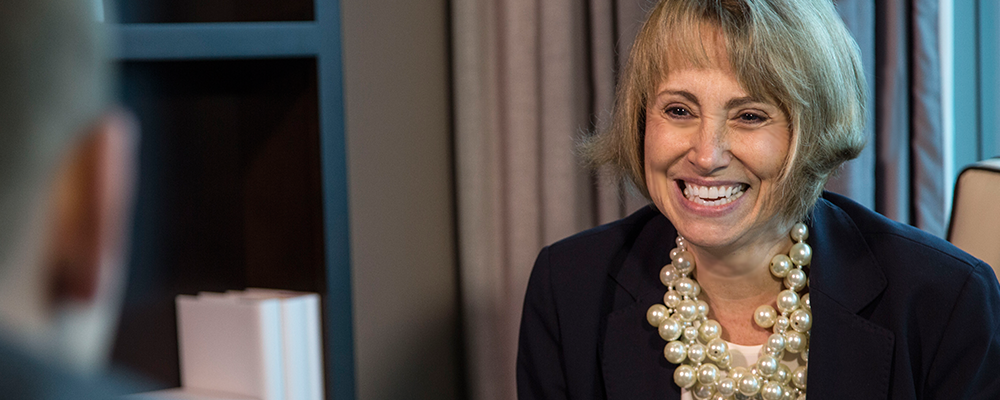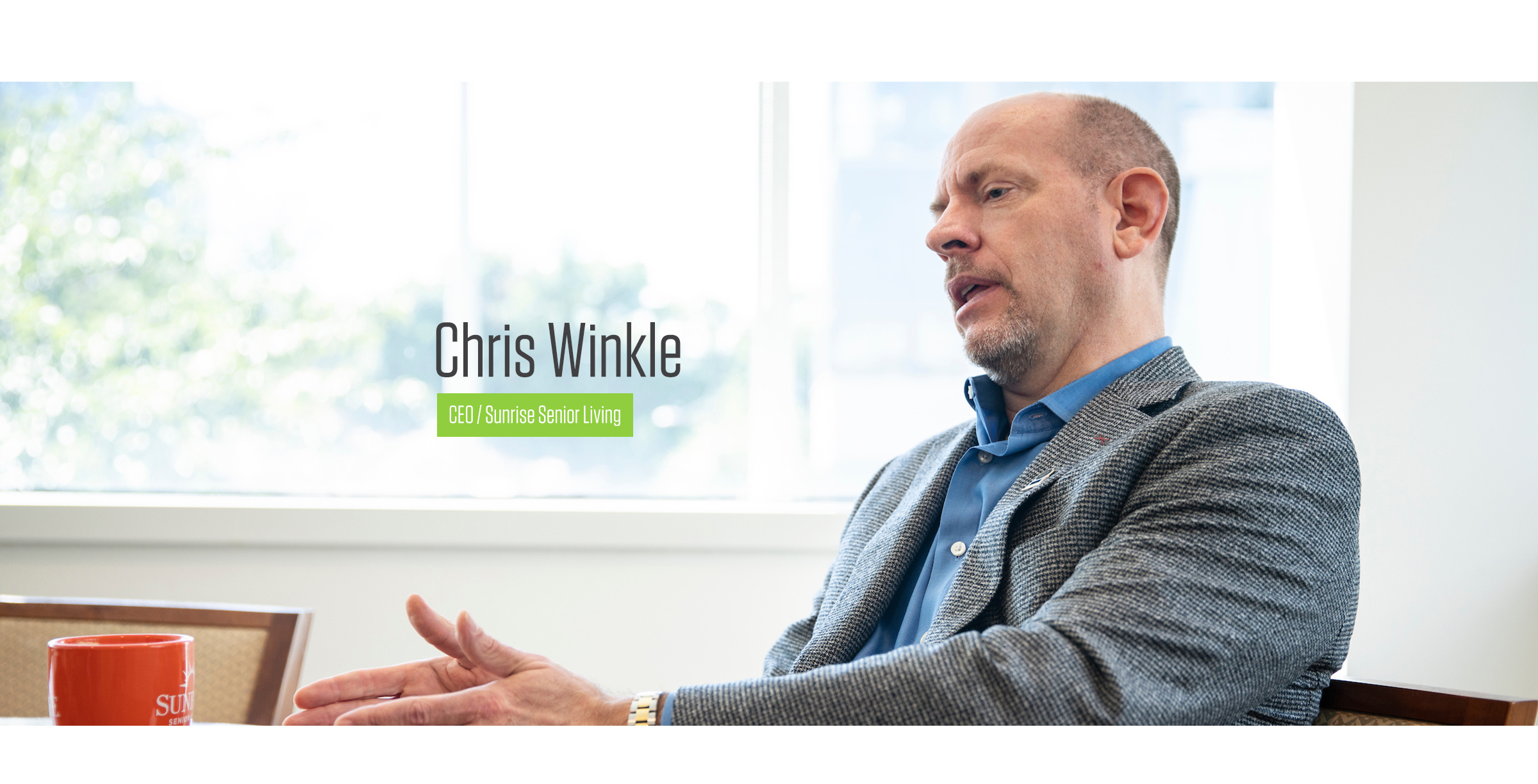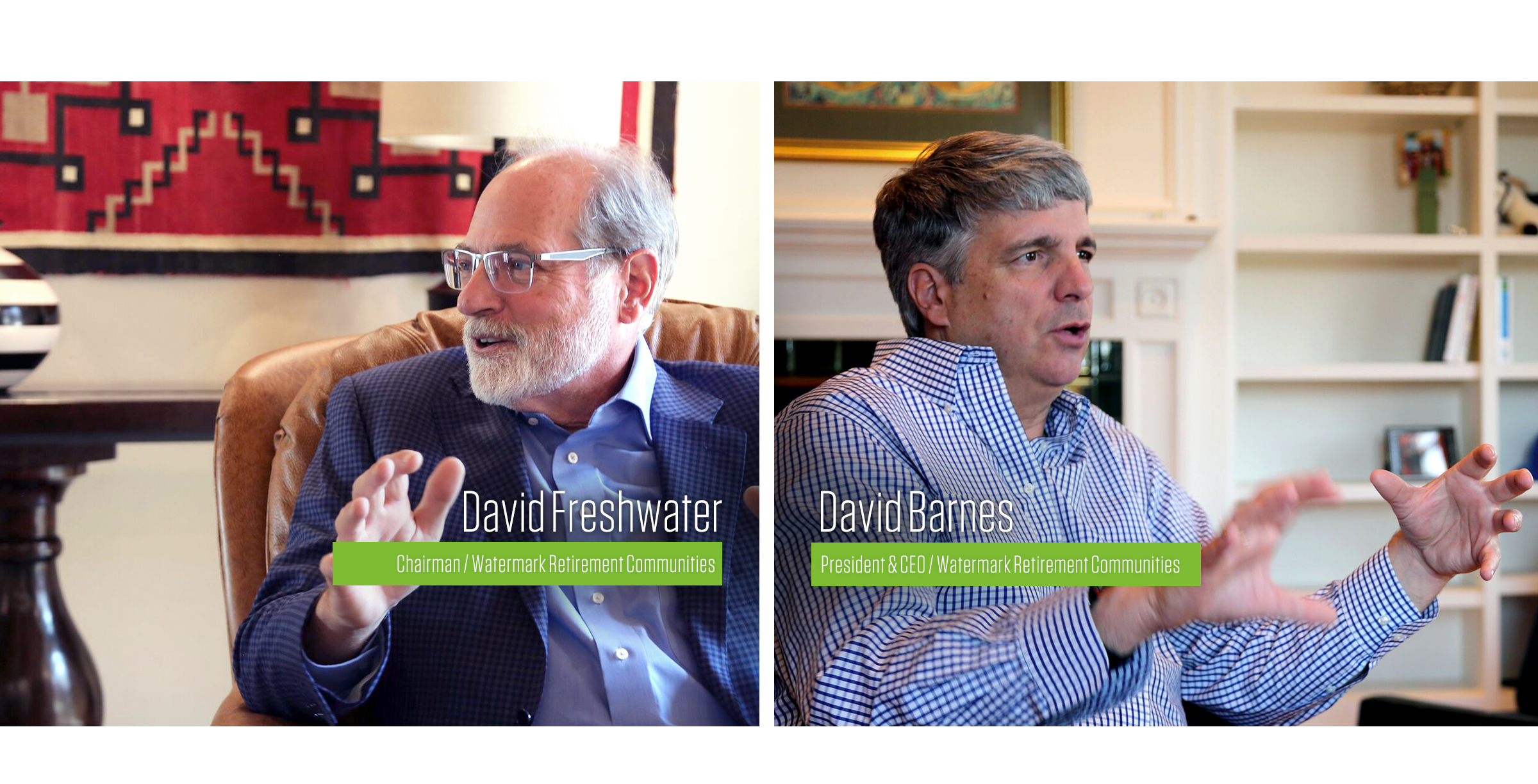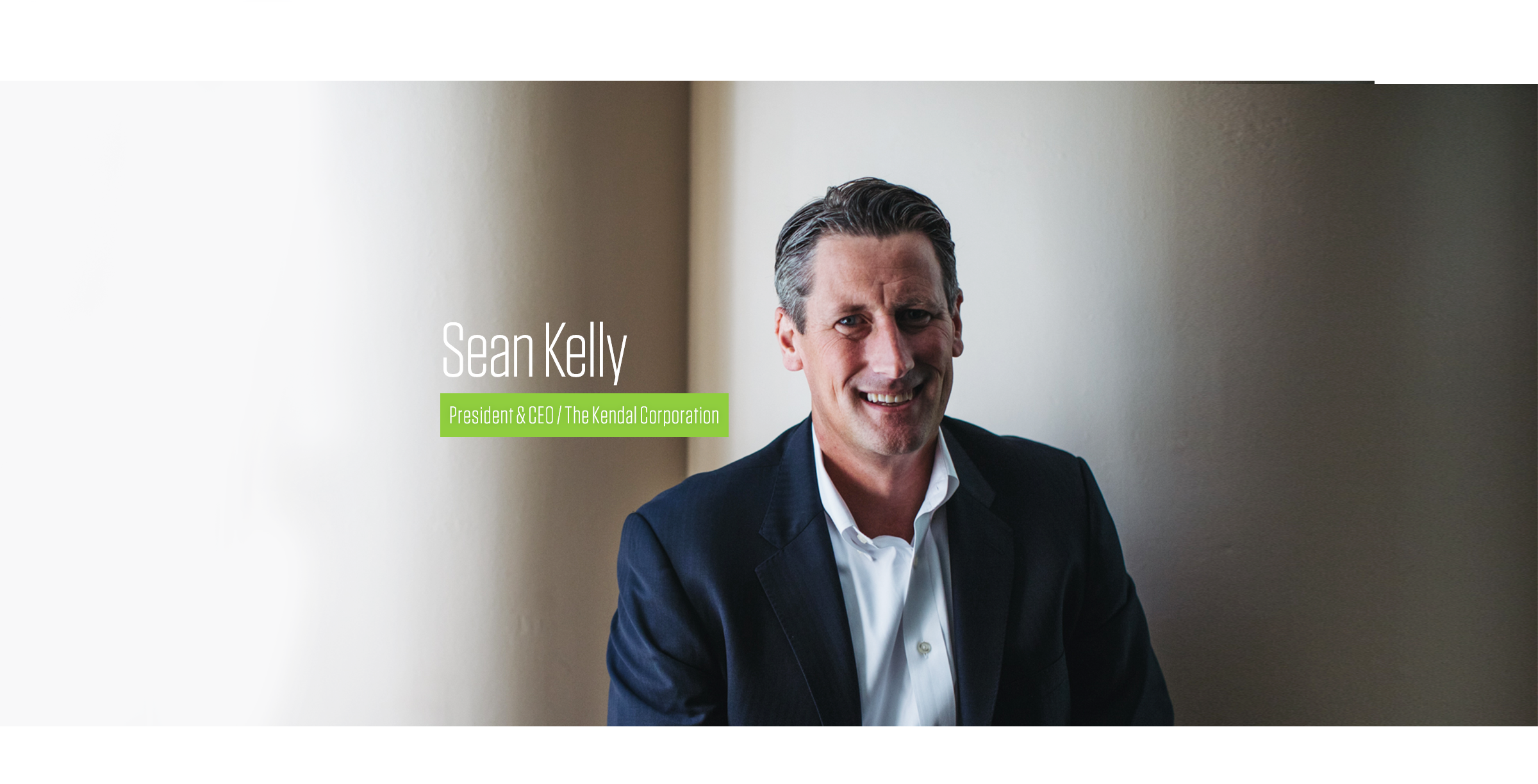Meet Wendy Simpson, CEO and President of LTC Properties, Inc., a Westlake Village, Calif.-based real estate investment trust focused on senior housing and health care properties. Simpson became LTC’s CEO in 2000 after a career that started in public accounting and led her to specialize in health care.
Since taking on the top leadership position for LTC, Simpson has overseen the company through the great recession and several ups and downs for health care REITs. After employing a strategy that revolved primarily around acquisitions, LTC has shifted its approach to include new development, particularly in the memory care sector. We sat down with Simpson to hear about what she really thinks of “self help” books, why growing gradually is better than doing the big deal, and what the senior housing industry needs to do better in its day-to-day management of workers on the front lines.
Tell me about your path to LTC.
I started out in public accounting, and happened to get assigned to a lot of health care clients. From there, I was an auditor on Beverly Enterprises, which used to be the training ground for all skilled nursing. I was recruited out of public accounting into the health care industry and I started with a national acute care hospital company which has morphed into Tenet after all these years.
From Tenet, I went to Community Psychiatric Centers, which then was the largest psych hospital chain, and they were developing an LTAC division. I started as the CFO of that LTAC division. We sold the division eventually to what is now; it used to be Vencor, but it’s now Kindred. Andre Dimitriadis started LTC in 1992 and asked me to join the board in 1995. Then in 2000, when the then-CFO wanted to step back, Andre asked me to join the company as an employee. Then I have just risen through the ranks.
How is your job different now from back when you originally took over as CEO?
When I originally started as CFO in 2000, it was when a lot of nursing home companies were going bankrupt due to reimbursement changes and bad capital structures. At that point we were in the foxhole; we had to get down below the surface and work out some issues. Over the last several years we’ve been able to grow. It has been a ride. It’s taught us many things.
What has it taught you?
It has taught us that it’s better to grow gradually and specifically rather than to do the big deal and make a big statement. We make little statements, so we don’t try to do a broad brush approach to the market.
Has your style of leadership had to change from when you were down in the foxhole to where you are now?
No, not at all. You set a goal and you go towards that goal. Our goal at the time, in the foxhole, was to de-lever. When the recession hit, we had no debt and we had cash so we had reached our goal, which was to de-lever. Then we were getting criticized for not using more leverage to grow. Now, I consider us levered. Our CFO Pam has told me, “You can take a little more!”
One of the things I learned in my career is you don’t bet the mothership, and the mothership is what we have now.
I don’t ever want us to be at a point where we would have to sell a lot of equity and dilute everybody to pay off debt. The first thing is to earn a return for our shareholders, and the second thing is to pay off our debt. You make sure that your measured success in the future is focused on paying that debt back.
You make it sound pretty simple, very matter of fact.
It’s just math. I also don’t believe that when $100 million comes due that the market’s going to be there for me. It’s either the debt market or the equity market. There are other people who believe that the market that they need will be open when they need it, and they run their companies that way and sometimes they succeed. I think it’s a philosophy.
I would definitely say that you guys are more conservative.
Yes, we are.
Does that come from you and your philosophy?
Yes, it does come from me and my philosophy because it comes from the top. LTC founder Andre Dimitriadis was much more creative financially. Unfortunately he’s passed away, but we would be in meetings talking about a deal and Andre would have all sorts of ways to accomplish the deal—like setting up a subsidiary structure, or I thought we could just write a check. He was much more forward thinking, much more creative in financing. Not that I don’t think I have some creative ability, I just am not the person who’s going to step out and do a new financing that no one’s ever done before.
Do you think that’s why he hired you as CFO, because you would be a good counterweight?
I think so. We had a really good relationship in the fact that we were friends and we could talk to each other at the board level. He had a different life philosophy than I have, but we worked well together.
Do you have that counterbalance now in LTC for you?
I think I have it on the board level more than Andre had it on the board level. I’ve got Jim Pieczynski who was head of CapitalSource; Jim and I worked at American Medical International (AMI) and he was a CFO of LTC who wanted to retire when I came on as an employee of LTC. When Andre passed away, I asked Jim to come back to the board. I kind of use him as my unofficial due diligence sounding board. Clint Malin’s the CIO and Pam Kessler’s the CFO. We’re very open with each other, but I believe people run their companies the way they run their personal lives, and I’m not over levered; I have zero leverage. I don’t believe either of them live on the edge either. They’re a little more like me in terms of philosophy. It would be difficult if I had a CIO who found every deal to be wonderful because it would be very wearing on me. I think among the three top people, we have more of a similar philosophy.
Leadership
What’s your definition of leadership?
I think it’s a clear vision and the ability to articulate it and get the group to agree with you or be open enough to challenge something that you’re not seeing. There’s nothing I like more than a discussion where I can say, “I haven’t thought about that.” It’s just great.
…[leadership] is a clear vision and the ability to articulate it and get the group to agree with you or be open enough to challenge something that you’re not seeing. There’s nothing I like more than a discussion where I can say, “I haven’t thought about that.” It’s just great.
I think leadership is being open to different ideas or new ideas or changes in your ideas.
During your time, what’s been the biggest challenge the organization has faced and how did you overcome it?
The biggest challenge was an internal challenge, because when we were de-levering, we really didn’t have a choice. We had to pay the debt off and get the balance back in the company. Then when that was done, prices were going up, so through 2004 and 2005 and up to the recession, we had nothing but money. Everybody else was growing and they were buying all of these assets and we kept looking at these deals and of course our cost of capital at that point was a little higher than other people’s cost of capital, and we kept penciling them out and penciling them out and we would say, “What are we missing?” We never thought we were smarter than everyone else, we just thought we were maybe a little less bold than other people.
When we started to look at building memory care, it was kind of a step out because it was something we hadn’t done in quite a while, and that was going to be a way of growing. The hardest thing was changing the direction. At that point, there were big deals being done all over, the RIDEA structure was coming into place, and we looked at RIDEA and why it didn’t work for us. We were telling our analysts, “No, no, Ventas is wrong and HCP is wrong” and they’re billions of dollars and we’re just this little company. It was difficult. We believed, for us, not doing RIDEA was the right road.
You talk about having to de-leverage. Tell me that story. I don’t know the history of why you were forced to do that.
In 2000, LTC had about $190 million outstanding on their line of credit and that was when Sun Healthcare Group was going bankrupt, and Mariner Health Group and Integrated Health Services Inc. (IHS) were going bankrupt, and we had a lot of Sun properties and we had some Mariner properties, so some properties were coming back.
Were you CFO at this point or CEO?
I was CFO. Bank of America, which was a very small portion of the $190 million, decided they weren’t going to renew their portion of the line of credit. The bank groups started to fall apart, we didn’t have $190 million to stroke a check, and the banks wanted us to just sell assets. Sell assets, sell assets and sell assets. So Andre convinced them—through using the ‘bankruptcy’ word—that what they needed to do was give us an extension and yes, we would sell assets at a measured pace and pay off a certain percentage of the proceeds to the banks, but we would also be able to buy back our stock. Which is not usually what the banks let you do.
Did you know you were walking into this as the CFO?
I did, because I was on the board.
Has that experience influenced you on how you run the business today?
Oh yes, you just never want to be in a bank’s workout group. They can be very nice people, though.
What’s the biggest risk that you’ve taken in your career? I can tell you don’t really love risk that much.
No! I took a job for a couple of years in Colorado, it was a home infusion company and they were in serious financial trouble. They had taken money from a fund in New York, and I really didn’t know home infusion, and they wanted me to help them work out the debt.
A lot of the company’s money was sitting on shelves in inventory, and it was so difficult to get that money out of there, and the venture fund wanted their money. They finally brought in another CEO and I just said, “I’m out of here.” I think that was probably a bad career decision; it set me back two years. It’s amazing I am where I am today when I wasted two years at this! But they eventually succeeded.
What’s the best piece of advice you’ve gotten in your career?
Show up and work hard.
Who said that?
I think it was Woody Allen. Somebody said 90% of success is showing up. I was just at a meeting where Michael Bloomberg spoke and he said he always works with people smarter than he is, and he says, “…but they’ll not outwork me.”
One of the things I liked about public accounting is that it teaches you how to work. I mean through the busy season, your personal time is zero. Their time is 100%. It’s really a great training platform.
If you were to recommend one book on leadership what would it be and why?
On leadership?
I’m anticipating a Warren Buffet….
People keep giving me these self help books!
Who? Did you give them one back?
I’m thinking of writing one!
Who would you consider to be your mentor and how have they helped your career?
Oh, it had to be Andre.
Tell me a little bit about Andre.
He was born in Turkey and raised in Turkey. He went to the American College in Turkey and his father, who worked for Mobil, told him, “Son, you’ve got to go to the States. That’s where you will succeed.” So he came over and I think he got his undergraduate degree at Princeton, and he thought he was going to be in computer sciences. He was taking all of these advanced math courses—my favorite Andre story is when a professor took him aside one day and said “Son, you are very, very smart, but these other students are geniuses. You should change to finance and then you could hire all of these other people.” So he went into finance. He first went to the airline industry. He worked for Pan Am. He was a traveler. Friday after work he would go to the airport and he would get on a plane and go to wherever it was going. He got into health care because at American Medical International (now Tenet), when he came in, the company was going through some financial challenges. The philosophy in big corporate America sometimes is to get somebody outside of the industry to give the company a different look. So, unwittingly, they brought in Andre, and Andre, having come from the airline industry, which has its ups and downs and that sort of thing, started reorganizing the company. Reorganized us right into an LBO. So that’s how I got to know him, because I was already at AMI.
How did he inform your career?
Just by seeing how he looked at things, how he looked at finance.
Do you still think about him when you’re running the company today?
Oh absolutely. There are times when something happens, I want to tell him.
What would you say some of your greatest strengths are as a leader?
I’m accessible. I’m absolutely always at work. I don’t over manage. Clint and Pam do their things, and every once in awhile I like to know what they’re doing, but they’re very, very good at what they’re doing and they interact together very well and I think that’s it.
What would you say your greatest weaknesses are?
I don’t know when to retire.
Retire retire, or you don’t know when to stop?
Retire retire. At some point you’re done, but I don’t know when that is.
Not everyone feels that way, my old man will work until the day he dies, I swear.
I may, too.
Is there anything you think you could work on?
I am not a joiner, I’m not somebody who’s going to go into a cocktail party and meet new people. I always enjoy meeting new people, I’m just not the person who’s going to set it up.
The Future of Senior Living
Say I’m about to graduate college. What would your pitch to me be about why I should look to the senior living industry as a career?
If you are a “people” person you might want to go into the care side of the business. If you’re a techy, we are so in need of new systems and new ways to measure outcomes and things like that. It’s wide open for what you think your interests would be. Plus, it is a very portable career. You can go to any state and if you’re an oil driller you’re probably not going to do much in some states, but if you’re a caregiver or a licensed SNF operator, there are opportunities to get promoted and take on more responsibility. Look at the broad spectrum and find out where you can play in it.
What types of technology do you think the industry really needs to focus on right now?
Data collection, and not just data collection, but finding out what is going to be important for the payers. Figure out a way that you can capture that and synthesize it and present it.
Are there any types of technology that you’re telling your operators to look at?
No, we don’t get that granular. I’ve heard of PointClickCare and we do talk about systems that operators are using. I’m sure there are a lot of other systems being used, but we don’t generally get that granular with them.
Do you think the senior living industry does a good job of taking the people from the front lines and giving them a pass to climb the executive ladder?
I do. Right now, almost every operator that I talk to has challenges with getting qualified people. It’s like a battlefield promotion. There’s a need, so you might get an opportunity to show that you can do it. Right now is a really good time for people to get promoted and to have an opportunity to do something that will be challenging to them because they haven’t done it before.
But are they doing enough? ED turnover is almost 50%, if not higher. Isn’t that a problem?
Yeah, it may be an appreciation problem. Employees work for money but it is amazing how much a ‘good job’ comment or ‘why don’t you take the afternoon off’ is so important to people. Maybe that’s something the industry doesn’t do enough—to recognize the little things that an employee does.
Employees work for money but it is amazing how much a ‘good job’ comment or ‘why don’t you take the afternoon off’ is so important to people. Maybe that’s something the industry doesn’t do enough—to recognize the little things that an employee does.
The biggest challenge the senior living industry faces is understanding the changing paying environment. Understanding what managed care is doing and what Medicaid is doing. It’s important to accept the fact that things are going to change, and get ahead of it.
You’re talking about the payers, Medicare and Medicaid, but then LTC all of a sudden got in this new line of business in memory care—which is the opposite. Tell me about why you made that jump.
When we first started buying assets during and after the recession, we had more opportunity to buy skilled nursing properties because the big players stepped away from them. You can buy almost anything if you can underwrite it properly, if you can get it for the right price. So we had opportunities to buy skilled nursing, but the private pay prices were pricing to a point where we couldn’t compete. We have about half SNF and half private pay, so our balance sheet was getting a little heavier toward SNFs. We started looking at how we could increase our private pay portfolio, and so when Clint and I had been around looking at properties, our own and others, we noticed that if an assisted living community had a memory care unit, it was generally full. So we started looking around and we thought we could probably build some of these memory care properties. My view was that memory care was going to be like assisted living was back in the early ‘90s. These little companies grew up and Sterling House became Alterra, and Alterra became Brookdale, and so I thought maybe this is how memory care companies are going to build up. So we started looking for management teams that had a gleam in their eye and a plan and needed capital. That’s how we met Anthem and Thrive and Clarity Pointe and some of the people we’re building with.
Has that been a fun new part of your business?
Absolutely! Our assets are needs driven but it’s nice to see the new properties. We’ve also built some new skilled nursing properties and that’s an inventory that really needs to have some new buildings.
It seems like skilled nursing is starting to become something that people are interested in again, because the prices of AL have gotten so crazy. Does that mean that you guys are looking for more skilled, or to do more ground up memory care?
We’re all of the above. We’re working on everything. I think skilled nursing is going to be a little more difficult in this transition time. I don’t think you can underwrite on a trailing 12-months because in the last quarter they’ve seen a dip in occupancy, and how dippy is that dip? Is that a real dip or is it a rut? It’s going to be a little harder to underwrite skilled nursing in the next 12-18 months, but it’s not going away.
What was your pitch to Anthem when they came to you? Or was it more them pitching you? Correct me if I’m wrong, but you were initially the only ones they were working with, right?
We have a right of first refusal agreement with them.
The way that Mark Rockwell [Anthem Memory Care principal] told me, it’s a perfect relationship because they don’t have to waste their time trying to find capital anymore.
That was the pitch. They had done a property in Chico, California and we went up to see it. They had gotten HUD construction financing and it was just so difficult. They were looking to do the next building and so they were talking to private equity then they came to talk to us, and they understood our plan so much faster than anybody else did—that was, we will fund everything but we will own it and you will operate it. They wanted to be an operator, they didn’t necessarily want to own the property.
The first one in Littleton, Colorado was a raging success. They are just almost the perfect partner, not that all of our operators aren’t perfect partners, but Mark and Isaac Scott and Lewis McCoy are just great guys to work with.
One of our reporters was just at one of their openings and she said it was really nice.
One of the things I do with our board, we used to do a board retreat every year and we’d go to Cabo or some resort. So when we started doing development I said, “Let’s go to a property.” I think the first one we went to was a skilled nursing property outside of Cleveland.
Board retreat in Cleveland, yeah! I bet the board members were pumped about that.
They were! Then we went to Littleton and we went to Wichita, and this year they’re going to Detroit. I first thought I was imposing upon the operator saying, “We’re showing up!” But they really enjoy showing off their properties and it’s a great event for both sides, so yeah, we’re going to Detroit!
The future of senior living is changing. We don’t know what my generation wants. There’s a big change coming and it’s important to have more young people in the industry because they’ll look at it differently. I don’t know if it’s a different physical thing in terms of the building, or a different philosophical way of doing things differently, but it’s changing.









